Resources
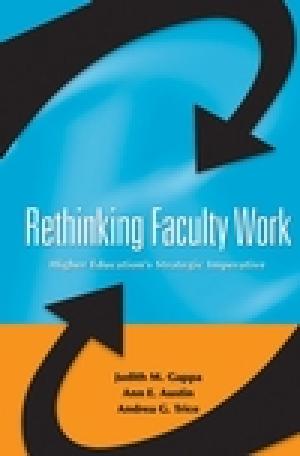
Written for educators, administrators, policy makers, and anyone else concerned with the future of higher education, Rethinking Faculty Work shows how changes in higher education are transforming the careers of faculty and provides a model that makes it possible for all faculty to be in a position to do their best. This important resource offers a vision of academic workplaces that will attract superb faculty committed to fulfilling the missions of the universities and colleges where they work. (From the Publisher)
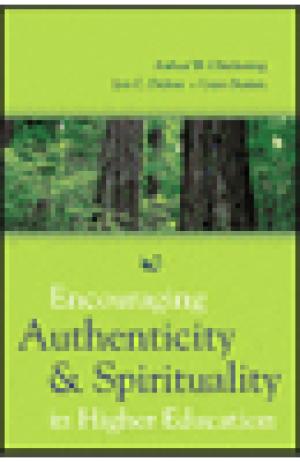
Encouraging Authenticity and Spirituality in Higher Education is a comprehensive resource that explores the theory and research and examines the current initiatives on the topic of spirituality in higher education. The book provides an array of illustrative examples to guide interventions in curriculum, student affairs, community partnerships, assessment, and policy issues. The authors cover the social and historical background as well as the implications for practice. (From the Publisher)

Taking on the challenge of the postmodernists of politics, Kenneth Minogue argues forcefully and persuasively that the current dominant philosophies of education rest upon a mistake. The fashionable belief that the university is society's handmaiden is confronted by a view of the university as an institution with an independent vitality and function. Minogue at one and the same time reminds us of the sources of admiration for university life in the medieval world, and how it rested squarely on its essential autonomy from the very social pressures that have come to define the modern university. The Concept of a University traces many confusions imposed by political ideology to a failure to distinguish academic inquiry from other kinds of intellectual activity, such as journalism, religious proselytizing, and high quality propaganda. Minogue holds that where the university lacks a clear sense of the difference between the academic and the pragmatic, its vitality is sapped by conflicting purposes. Much of the present debate about th crisis in universities rests upon a fundamental error of trying to fit them into some scheme of social functions. Minogue's analysis breaks through much muddled thinking on this subject, presenting instead a coherent, relevant, and stimulating approach to higher education. In a new introduction, Minogue tells us "we have become frightfully tolerant. Anyone can become anything, and we all belong to the one practical world of churning problems and solutions. There is no doubt that a new world is being born. It seems to be a world that will have little place for the disintegrated pursuit of truth. A great deal of old fashioned scholarship survives--partly by 'silence, cunning, and exile'--in the 'universities' of the present day, but little relationship remains between what we used to call 'universities' and the things called by that name today." (From the Publisher)
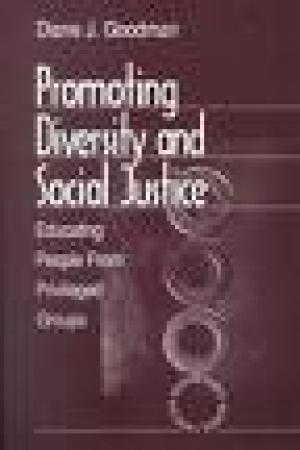
In order to implement effectively diversity and social justice initiatives, it is critical to involve people from dominant groups. It is dominant groups that perpetuate oppression. Can educators meet the challenge of implementing diversity and social justice in organizations and in the community? Promoting Diversity and Social Justice gives theory, perspectives, and strategies that are useful for working with adults on diversity and social justice issues. This book offers educational and psychological perspectives to inform practice and increase options in addressing conflict situations. The first part of the book helps the educator understand the reasons for resistance and ways to prevent it. The second part explains how educators motivate dominant groups to support social justice. This book is an excellent resource for group facilitators, counselors, trainers in classrooms and workshops, professors, teacher, higher education personnel, community educators, and any other professionals involved with educating others about diversity and equity. (From the Publisher)
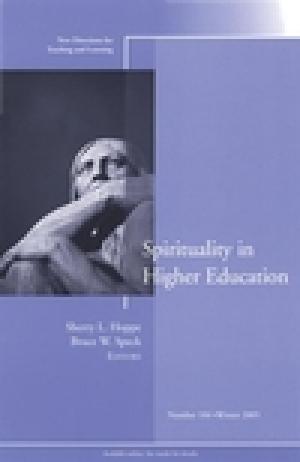
Questions about meaning and purpose are as old as humans, and in the earliest days of higher education, the search for truth was the ultimate journey of the student. Over the decades, though, the academy has often shunned the spiritual aspect of a student's education. Whether that is to avoid controversy or to protect from acknowledging that all is not known, there is a predisposition to avoid talking about spirituality in the academy. Regardless, the result is the creation of what T.S. Eliot called "hollow men" who live in this world but do not know why they are here and thus do not know how to live their lives. This book is one of many responding to a reawakening of desire to avoid such creatures. Its purpose, at least in a cursory way, is to look at spirituality in academe through a number of lenses. Composed of chapters from both faculty and administrators, this volume offers insight into the critical need for spirituality in educating the whole student while recognizing that how spirituality is viewed and taught (and experienced) is intensely personal. The goal is not to prescribe how spirituality should be integrated but to offer multiple options and perspectives. Not only will readers learn about the complex and vital role of spirituality, they will also be reminded that the quest for truth and meaning, not the destination, is what is vitally important in shaping discussions about spirituality.
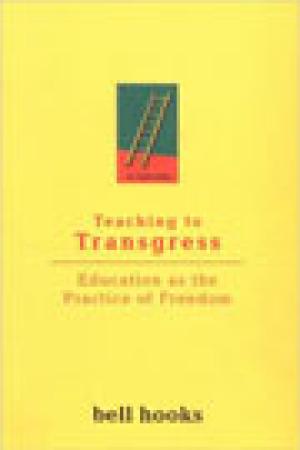
In this book, bell hooks, one of America's leading black intellectuals, shares her philosophy of the classroom, offering ideas about teaching that fundamentally rethink democratic participation. Hooks advocates the process of teaching students to think critically and raises many concerns central to the field of critical pedagogy, linking them to feminist thought. In the process, these essays face squarely the problems of teachers who do not want to teach, of students who do not want to learn, of racism and sexism in the classroom, and of the gift of freedom that is, for hooks, the teacher's most important goal. (From the Publisher)
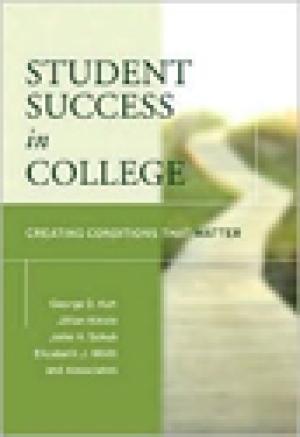
This book describes policies, programs, and practices that a diverse set of schools have used to promote student success, and shows how other schools can use them to improve student success in their context. Based on the Project DEEP (Documenting Effective Educational Practices) study, this book will provide concrete examples of what different types of institutions can do to help different types of students succeed in college at higher rates. The broad spectrum of schools make the book applicable across institutional type, showing readers how to encourage a variety of desired outcomes including student satisfaction, persistence, learning and personal development. Coordinated by the NSSE Institute for Effective Educational Practice a the Indiana University Center for Postsecondary Research, the project was co-sponsored by the Carnegie Foundation for the Advancement of Teaching, the Pew Forum on Undergraduate Learning, and supported by grants from the Lumina Foundation and the Center for Inquiry in the Liberal Arts at Wabash College. (From the Publisher)
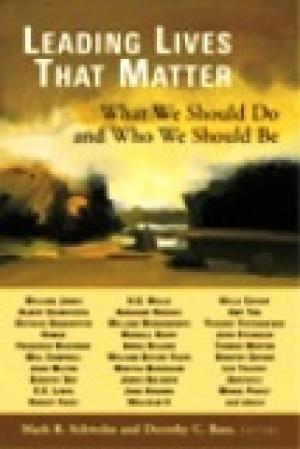
Leading Lives That Matter draws together a wide range of texts---including fiction, autobiography, and philosophy---offering challenge and insight if you're thinking about what to do with your life. Instead of prescribing advice, Schwehn and Bass approach the vocational process as an ongoing conversation. They include in this conversation some of Western tradition's best writings on human life---its meaning, purpose, and significance---ranging from ancient Greek poetry to contemporary American fiction. Including Tolstoy's novella The Death of Ivan Illych as an extended epilogue, Leading Lives That Matter will help you clarify and deepen how you think about your own life. Includes works by Aristotle, Dietrich Bonhoeffer, Frederick Buechner, Willa Cather, Dorothy Day, Annie Dillard, Robert Frost, Abraham Heschel, Thomas Lynch, John Milton, Martha Nussbaum, Theodore Roosevelt, Dorothy Sayers, Amy Tan, William Butler Yeats, and many more. (From the Publisher)
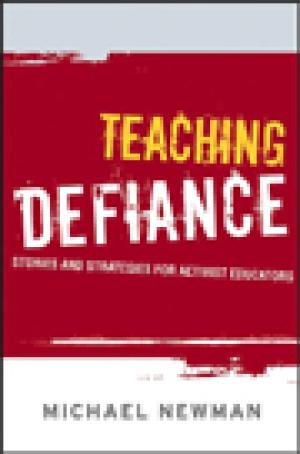
This book is for activist adult educators who want to help people make up their own minds and take control of their own lives. At its heart this book is about choice. It examines how activist educators can help people understand that they do have options and then help those people learn how to make effective choices. It is important as a counter to the increasingly formulaic writing in the fields of organizational learning, HRD and adult education. The author attempts to break free of these constraints and return to what actually happens in the encounter between educator and learner. (From the Publisher)
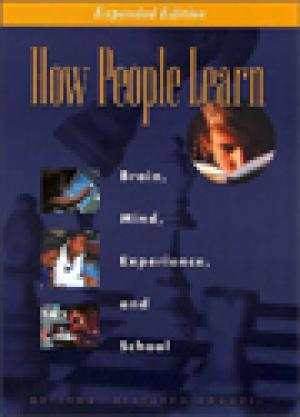
This book includes far-readching suggestions for research that could increase the impact that classroom teaching has on actual learning. Like the original hardcover edition, this book offers exciting new research about the mind and the brain that provides answers to a number of compelling questions. When do infants begin to learn? How do experts learn and how is this different from non-experts? What can teachers and schools do—with curricula, classroom settings, and teaching methods—to help children learn most effectively? New evidence from many branches of science has significantly added to our understanding of what it means to know, from the neural processes that occur during learning to the influence of culture on what people see and absorb. How People Learn examines these findings and their implications for what we teach, how we teach it, and how we assess what our children learn. The book uses exemplary teaching to illustrate how approaches based on what we now know result in in-depth learning. This new knowledge calls into question concepts and practices firmly entrenched in our current education system. (From the Publisher)